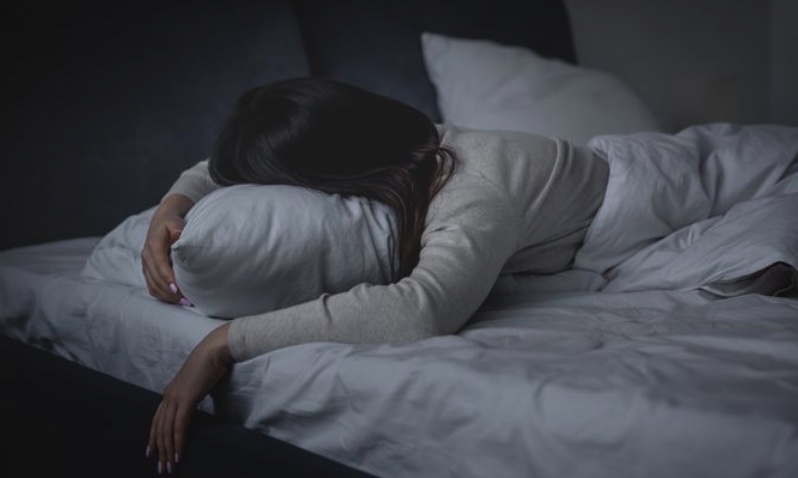#thethailandersnews
ผลการศึกษาใหญ่จากมหาวิทยาลัย Semmelweis ประเทศฮังการี ที่รวบรวมข้อมูลจากงานวิจัยและการสำรวจระดับนานาชาติ เปิดเผยข้อค้นพบที่ทำให้หลายคนต้องทบทวนวิธีการนอนของตัวเอง เมื่อพบว่าการนอนมากเกินไปอาจเป็นภัยเงียบต่อสุขภาพร้ายแรงยิ่งกว่าการนอนน้อย โดยผู้ที่นอนเฉลี่ย 9 ชั่วโมงต่อคืนมีความเสี่ยงเสียชีวิตก่อนวัยเพิ่มขึ้นถึง 34% ขณะที่กลุ่มที่นอนน้อยกว่า 7 ชั่วโมงต่อคืน ความเสี่ยงเพิ่มเพียง 14% เมื่อเทียบกับกลุ่มที่นอนระหว่าง 7–8 ชั่วโมงซึ่งถือว่าเหมาะสมที่สุด
นักวิทยาศาสตร์อธิบายว่า การนอนนานไม่ใช่สาเหตุโดยตรงที่ทำให้เสียชีวิตเร็ว แต่สะท้อนถึงปัญหาสุขภาพที่ซ่อนอยู่ เช่น โรคเรื้อรัง อาการแทรกซ้อนจากการใช้ยา ภาวะอ้วน หรือคุณภาพการนอนที่แย่จนต้องนอนชดเชย พฤติกรรมเสี่ยงอย่างการสูบบุหรี่และการใช้ชีวิตไม่แข็งแรงก็มีส่วนเชื่อมโยงด้วย ผู้เชี่ยวชาญชี้ว่า “การนอนมากเกินไปอาจเป็นสัญญาณเตือนของร่างกาย ว่ากำลังมีบางอย่างผิดปกติ”

ในขณะที่การนอนน้อยก็มีความเสี่ยงเช่นกัน ผู้ที่นอนต่ำกว่า 7 ชั่วโมงต่อคืนมักเผชิญปัญหาสุขภาพเพิ่มขึ้น เช่น โรคหัวใจ เบาหวาน ภูมิคุ้มกันอ่อนแอ และความจำเสื่อม อย่างไรก็ตาม นักวิทยาศาสตร์พบยีนหายาก SIK3-N783Y ที่ทำให้บางคนสามารถนอนเพียง 4–6 ชั่วโมงต่อคืนได้โดยยังสดชื่นและแข็งแรง กลุ่มนี้ถูกเรียกว่า “ผู้ที่นอนน้อยโดยธรรมชาติ” (Natural Short Sleepers) แต่ลักษณะนี้พบได้ยากมาก ไม่ควรนำมาเป็นข้ออ้างให้นอนน้อย

ดังนั้น ไม่ว่านอนมากหรือนอนน้อย ต่างก็มีข้อเสียเสี่ยงมีปัญหาสุขภาพในระยะยาว วิธีดูแลสุขภาพการนอนที่ดีที่สุดคือเข้านอนและตื่นนอนให้ตรงเวลา ลดสิ่งรบกวนก่อนนอน หลีกเลี่ยงคาเฟอีนและแอลกอฮอล์ และจัดสภาพแวดล้อมห้องนอนให้เอื้อต่อการพักผ่อน เมื่อทำได้ครบถ้วน คุณภาพการนอนจะสำคัญกว่าปริมาณ และนั่นคือกุญแจสู่การมีสุขภาพแข็งแรงอย่างแท้จริง
A major study from Semmelweis University in Hungary, analyzing international research and surveys, reveals that oversleeping can be a hidden health risk, potentially more dangerous than sleeping too little. People averaging 9 hours of sleep per night face a 34% higher risk of early death, while those sleeping under 7 hours have only a 14% increased risk compared to the optimal 7–8 hours.
Scientists explain that long sleep itself doesn’t directly cause early death but often reflects underlying health issues such as chronic illness, medication side effects, obesity, or poor sleep quality. Risky behaviors like smoking and unhealthy lifestyles also contribute. Experts note, “Oversleeping may signal that something is wrong in the body.”
Short sleep carries its own risks, including heart disease, diabetes, weakened immunity, and memory decline. However, researchers have identified a rare gene, SIK3-N783Y, which allows some “natural short sleepers” to thrive on just 4–6 hours of sleep. This trait is extremely uncommon and should not justify habitual short sleep.
Ultimately, both too much and too little sleep carry long-term health risks. The best way to maintain healthy sleep is to stick to a regular bedtime and wake-up schedule, minimize pre-sleep distractions, avoid caffeine and alcohol, and create a sleep-friendly environment. Prioritizing sleep quality over quantity is the key to long-term health.
#Sleep #Healthy #NaturalShortSleepers #QualityOverQuantity
ที่มา : https://soha.vn/

















